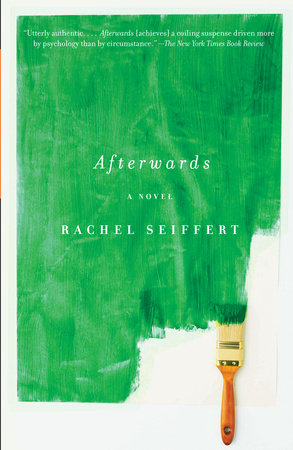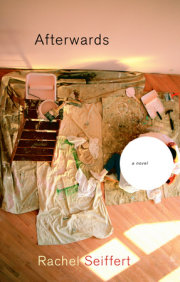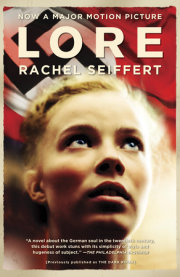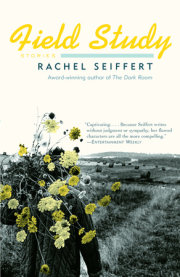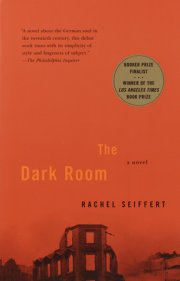Chapter OneWinter afternoon, five hours patrolling, seventeen minutes on the vehicle checkpoint and counting. Rain. Two cars, two drivers: one man, one woman. She was in the white car, three children with her. One adult passenger, male, in the other car, the red one. One multiple: four men on the rise, four in the fields, and four on the road. Two of us by the first car, two by the second. One round fired.There were reports to do, days afterwards when Joseph had to be interviewed. RUC and army. Debriefing, the doctor, the welfare officer. He vomited before the first one, with the police. It was the same afternoon, after they got back to the base. Joseph didn’t tell anybody about being sick, thought they’d smell it anyway, anyone who went near the bogs.Still had the sweat on his back and his hands when he was marched in to go over and over what happened. Six faces in the room, RUC and Red Caps, nobody Joseph recognised. There was the army solicitor too, who sat to one side of him and wrote things down while the others did the asking. Only two hours since Joseph was out on the road, maybe three, but it was still hard to get it all in the right order. MPs sitting back and watching, RUC wanting to hear it from him again and again, checking and checking, with the same and then with different questions.– What colour was the Astra?– Red.He’d said that before. – It was red.– Do you know how long it was there?No.– Before we started checking it?– Yes, you said it stopped a few metres away and waited. How long?He didn’t know.– They stopped too far back from us. Had the engine running. The whole time we were checking the car in front.Sounded stupid, everything he said made him sound like he was slow or something. It didn’t make much sense to Joseph either, now he tried to explain it.– Wasn’t safe to have the checkpoint up that long, you know? Had us all on edge, the last car hanging back when we should have been packing up.It was Armagh, it was getting dark and they’d been patrolling for hours, fields and roads. No buzz, no fuss. He hadn’t been expecting anything to happen, not until he saw that car waiting for them. Joseph tried again. To find the best place to start.– There were two cars. The one we’d stopped and then the Astra.– Yes, right. The first car, the white Escort, had stalled you say.– We’d finished checking her and then she stalled when she was driving away.– Draw it. Bird’s-eye view.Pencil and paper pushed across the desk, Joseph made his lines. Drew a box for the Astra, then the Escort, with an arrow showing the direction it was going when the engine cut out. But once that was in, he saw he’d drawn the Astra too close: looked like it was at the checkpoint already. So he re-drew that box, further back, and then asked if they had a rubber, explaining:– I’ve not drawn it right. It’s that one, see? Further back along the road.He scribbled over the first box and they gave him more paper so he could draw it all again, and then they asked more questions. About what happened next, when the Astra pulled up to the checkpoint, and Joseph drew some new boxes for them, on another bit of paper. – He opened his door, but he didn’t get out. Not at first.– The driver or the passenger?– Driver. The Lieutenant was talking to him. We were all watching, you know? The whole patrol, thinking something was about to kick off, or why was the driver not getting out like he was meant to? Joseph looked at the men across the table: they must know what he meant, surely. But if they did, they didn’t show it, they just wanted to know where everyone was standing, and Joseph marked the patrol onto his plan with crosses. Drew ones for the Lieutenant, and for Townsend, they were both by the Astra. Then the man he shot, because he was standing by the car with them. But that was after he got out of the driver’s seat to answer the Lieutenant’s questions. Maybe he should start on a new sheet, but no one said anything, so Joseph drew a cross for his Corporal, Jarvis, by the other car, the Escort: he’d gone to talk to the woman after she’d stalled. And he must have put one for himself somewhere around there too, because if he hadn’t they would have asked him. Questions were coming all the time: about how long it took before the driver got out of the Astra. And about the other man, still in the car, in the passenger seat, wouldn’t wind his window down, even after Townsend kept knocking. – Corporal told me to keep an eye on what was happening. We didn’t know if he was hurt or sick or what. Hiding something. – What gave you that suspicion?Joseph didn’t have a ready answer. Felt like that the whole time he was in there. Being asked about the order of things and about the warnings: if any were shouted, how many and when. He tried to keep it all together, one eye on the bin by the desk in case he had to puke again.
He kept reaching behind him. Why would he do that if he wasn’t carrying something? Don’t remember thinking about it. Just wasn’t a risk worth taking. Mostly we flew at dawn. It was often very misty up there over the forests. Pale sunrises and cool, a lot of moisture in the air. Best to get out before the heat had built up and the cloud, and you still had a chance of spotting something, usually it was smoke from their cooking fires. The Mau Mau had been flushed out of Nairobi by this stage, but they were holding out up in the Aberdares. The army was fighting them on the ground, Royal Inniskillings, if I remember rightly, and King’s African Rifles, but it was very difficult terrain. Mountainous, dense forest. We were there to provide support from the air.The spotter would be in a Piper Pacer, or a Harvard, something light. He’d send down a flare to mark the target, and then we’d go in. Sometimes just one Lincoln, sometimes as many as four or five. Each of us would be carrying five five-hundred-pound and five one-thousand-pound bombs. Something in that order. We’d follow these visual attacks with low-level strafing runs: had gunners in the front and rear turrets and, cloud permitting, we’d use both. At around five hundred feet, banking steeply over the canopy. Most mornings that was the routine. About an hour all in. I was there for seven months and later on our strikes were stepped up, eight in one day was the most I remember. They lasted almost two years, the air operations. Best part of a decade in all, the whole Emergency, and the insurgents were up in those mountains right to the end.I can’t say what effect we had. It was too dense to see much, the forest. The white spotter’s flare I can remember. Sometimes a darker grey cloud thrown up by one of our bombs, but nothing much else. No real indication of what might have been happening underneath. They seemed to swallow everything, those trees.
Copyright © 2007 by Rachel Seiffert. All rights reserved. No part of this excerpt may be reproduced or reprinted without permission in writing from the publisher.

